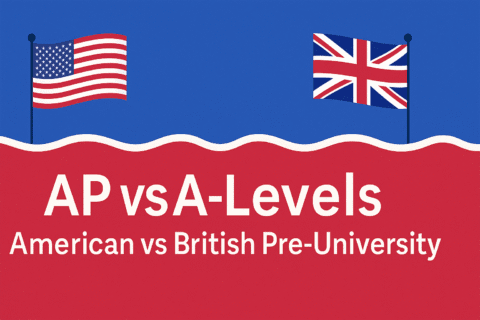What Does the AP Exam Really Do For You?
Let me guess—you’ve either just signed up for your first AP class or you’re staring at that $98 AP exam fee wondering, “Wait…what exactly am I paying for again?” Been there. And trust me, that confusion is totally normal.
I remember prepping for AP Psychology with flashcards taped to my bathroom mirror, feeling like the entire college world was resting on that one test. Dramatic? Maybe. But the moment I realized a good score could help me skip a full semester of intro psych in college (and the tuition that comes with it)? That changed how I saw the whole thing. These exams aren’t just tests—they’re academic power-ups.
Let’s unpack the real purpose of AP exams—and why they might just be one of the most strategic moves you can make in high school.
Are AP Exams a Big Deal?
Short answer? Yes. But not in a pressure-cooker, ruin-your-life kind of way.
AP Exams are a big deal because:
Colleges take them seriously. Scoring well signals that you’re ready for higher-level learning.
They can earn you college credit, meaning fewer classes to take and pay for later.
They build confidence. Passing one tough AP exam can make the SAT or ACT feel like a warm-up round.
The key is not letting them intimidate you. They’re a big deal, sure—but not a barrier. With strategy and effort, you can totally handle them.
What Does AP Do to Your Grade?
In most high schools, AP classes are weighted more heavily than regular or honors courses. Here’s the GPA math:
An A in an AP class = 5.0 on the GPA scale, not 4.0
Even a B might boost your GPA more than an A in a standard class
🔥 Translation: One AP course done well can seriously elevate your class rank and GPA, which matters big time when applying to competitive colleges.
Also, some schools use AP performance to determine valedictorian status or access to other elite programs. So yeah—it adds up.
What Happens If You Fail an AP Exam?
Let’s bust a myth right now: failing an AP exam is not academic doom.
Here’s what happens:
You still get credit for completing the AP course itself on your transcript.
Most colleges don’t require you to send AP scores unless you want them to see them.
Failing doesn’t impact your high school GPA unless the class grade itself was low.
In other words: taking the AP class is the win. The exam? Bonus round.
Is an AP Exam Mandatory?
That depends.
Some schools or districts require you to take the AP exam if you enroll in the AP class. Others leave it up to the student. The College Board doesn’t enforce anything—it’s up to your school’s policies.
BUT: If you want the college credit, taking the exam is non-negotiable. You can’t skip the test and still expect universities to hand you free credits.
Are AP Exams Hard?
Yes, they are. Let’s not pretend otherwise.
But “hard” doesn’t mean “unbeatable.”
They’re college-level, so the material runs deep.
There are FRQs (free-response questions) on most exams, which require critical thinking and writing—not just bubbling in answers.
The pacing is fast. You’ll need time management and test endurance.
That said, people pass every year. With smart prep, review books, YouTube walkthroughs, and maybe a study buddy or two, you can absolutely crush it.
What is the Age Limit for the AP Exam?
Zero. None. Nada.
The AP program is technically open to anyone, regardless of age. While most students are high schoolers, there are no age restrictions.
This means:
Homeschooled students? Welcome.
Adult learners? Go for it.
Middle school prodigies? You can take them too (and many do!)
You just need to register through a participating school or AP coordinator.
What is the Point of Taking AP Classes?
Let’s bullet it out:
✅ Save college tuition (up to thousands of dollars, legit)
✅ Earn college credits before even stepping foot on campus
✅ Stand out on college applications
✅ Prep your brain for college-style learning
Plus, AP classes can help you discover academic interests early. Like, maybe AP Computer Science opens the door to a tech career. Or AP Psychology helps you realize you want to study behavior or marketing.
What Are the Disadvantages of AP Classes in High School?
Yeah, it’s not all rainbows. Let’s talk drawbacks:
Stress and burnout are real, especially if you overload on APs in one semester.
Not all colleges accept every AP credit—some schools (especially elite ones) are picky about what they count.
If you struggle in a subject, that weighted GPA benefit can backfire if your final grade tanks.
Take AP classes that align with your strengths and goals—not just what looks good on paper.
How Many AP Classes Should I Take?
This depends on your situation:
Top 10 university applicant? Aim for 6–10 APs total throughout high school.
Applying to solid public/state schools? 3–5 APs with good scores can still be a standout record.
More focused on credit saving than prestige? Take 2–3 of the high-credit APs like AP Calc, AP Biology, or AP U.S. History.
Remember: It’s not about maxing out—it’s about showing mastery and managing your time well.
Why Are AP Exams So Expensive?
Let’s be honest: the cost is wild.
At about $98 per exam, it’s a lot for one test. But that money goes toward:
Creating and updating high-quality exams
Paying scorers (including real college profs!)
Administering secure and standardized tests
🌟 Good news: If money’s tight, fee waivers exist. They can reduce your cost to as low as $0 or $30 depending on your income and state.
What Are AP Classes in High School?
They’re basically intro college courses taught in high school. You’ll see:
More homework
More depth
Faster pacing
Higher expectations
And hopefully? More satisfaction when you crush the final and realize you’ve already got college credit under your belt.
What Percentage of Colleges Accept AP Credit?
Roughly 90% of U.S. colleges and universities accept AP credit in some form.
That said, policies vary:
Some schools require a minimum score of 4 or 5 to grant credit.
Others might accept a 3, but only for general electives.
Some limit how many total AP credits you can apply.
Check each school’s AP credit policy online before banking on it for early graduation.
Final Thoughts:
AP exams aren’t just some high-stakes testing gimmick. They’re a legit way to show what you’re capable of, save big on college, and stretch your academic muscles.
Even if you don’t ace every single one, the process builds grit, time management, and self-discipline. And that? That’s gold in college—and beyond.
So whether you’re a first-timer or an AP vet, don’t let the pressure get in your head. Prep smart. Show up. And let your brain flex.
Got more questions? I’m always down to talk AP strategy. Drop a comment or hit me up. 🎓


